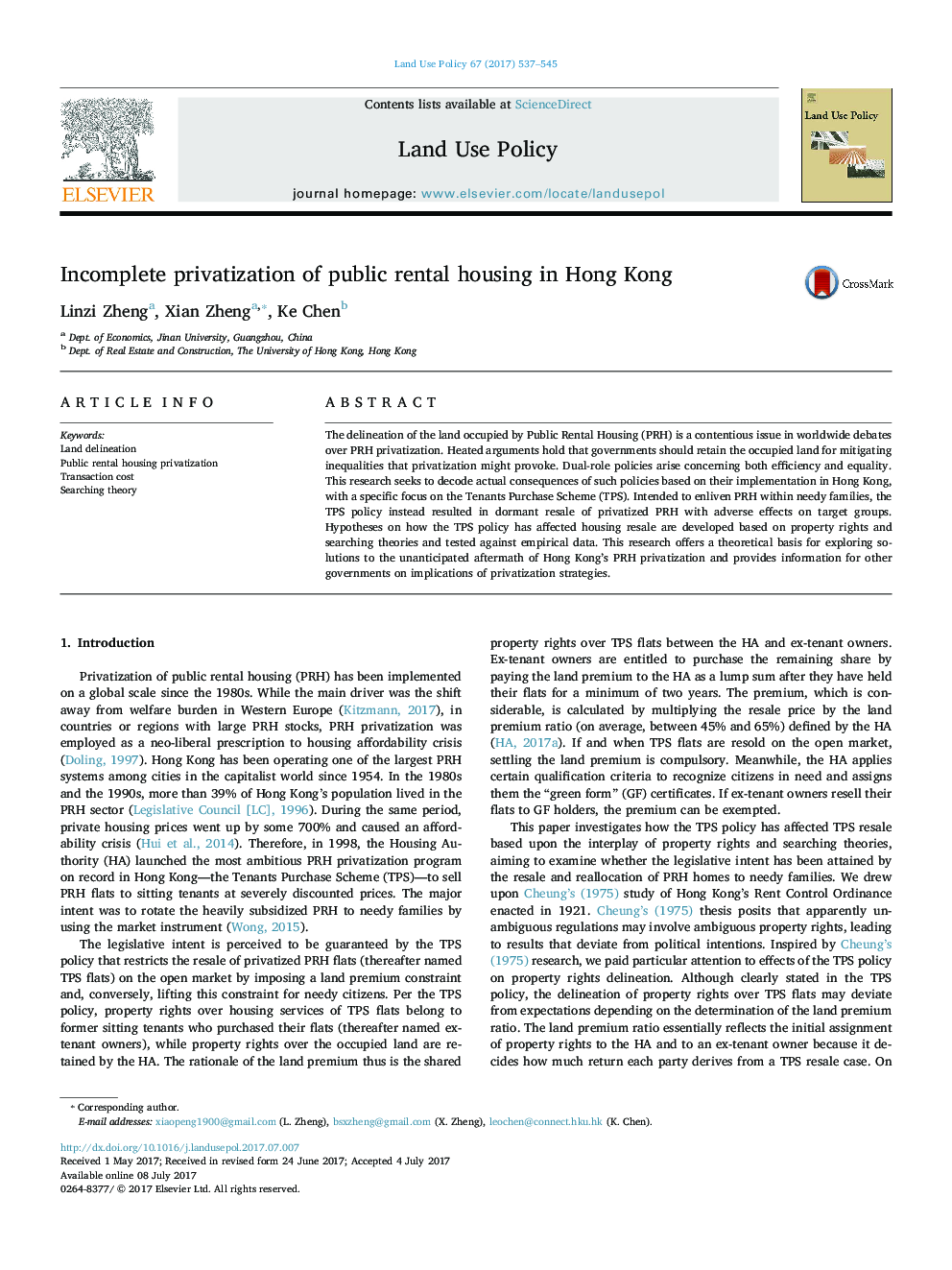| Article ID | Journal | Published Year | Pages | File Type |
|---|---|---|---|---|
| 6460729 | Land Use Policy | 2017 | 9 Pages |
â¢This paper concerns the land rights delineation in housing privatization.â¢The paper studies the Hong Kong's experience related to such concern.â¢Thesis of this paper follows a deduction strategy and is quantitatively confirmed.â¢This paper yields implications to a broader context and is of relevance.
The delineation of the land occupied by Public Rental Housing (PRH) is a contentious issue in worldwide debates over PRH privatization. Heated arguments hold that governments should retain the occupied land for mitigating inequalities that privatization might provoke. Dual-role policies arise concerning both efficiency and equality. This research seeks to decode actual consequences of such policies based on their implementation in Hong Kong, with a specific focus on the Tenants Purchase Scheme (TPS). Intended to enliven PRH within needy families, the TPS policy instead resulted in dormant resale of privatized PRH with adverse effects on target groups. Hypotheses on how the TPS policy has affected housing resale are developed based on property rights and searching theories and tested against empirical data. This research offers a theoretical basis for exploring solutions to the unanticipated aftermath of Hong Kong's PRH privatization and provides information for other governments on implications of privatization strategies.
